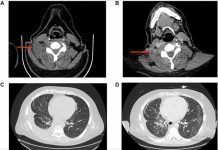We spoke to Professor Mike Barnes, to discuss the future of medical cannabis and cut through the fake news saturating the field
Professor Barnes is a consultant neurologist and medical cannabis expert, who works with a range of organisations, from the United Patients Alliance to the End Our Pain campaign. He also founded the Medical Cannabis Clinicians Society.
He joined GW Pharma in the 2000s after his work in Newcastle clinics led him to the use of illegal cannabis to combat pain. In speaking to his spasticity and Multiple sclerosis (MS) patients, he discovered that 50% of them were using cannabis to help “their muscle spasms and pain”.
“That surprised me,” he added, “as it was totally illegal at the time.”
In May 2016, he analysed the teeming mass of available information about medical cannabis at the request of the All-Party Parliamentary Group on Drug Policy Reform. The report, ‘Cannabis – The Evidence for Medical Use’, was the first of its kind, The findings went on to impact how the cannabis debate evolved in the UK, Channel Islands and Ireland.
When working with patients 20 years ago, Professor Barnes understood intuitively that something remained to be unearthed, something of great use to the medical world. Fast forward to now, and the urgent pursuit of medical cannabis is dominating narratives.
Let’s discuss your 2016 report to the APPG on Drug Policy Reform. We’ve found professionals calling for more “placebo-controlled double-blind trials.”
In the last four years, have you seen a change in the level of high-quality research?
“There has certainly been a huge increase in research into cannabis as medicine. There have been more papers written in the last 4 years than all the previous years, put together. However, we should not be obsessed by the double-blind, placebo-controlled trial model.
“That is fine for a new single-molecule pharmaceutical product but doesn’t lend itself to the cannabis plant which is a complex organism. It would be wrong to wait many years for those trials to be reported.
“There is a huge amount of observational data and real-world data which is useful and gives much information about the plant’s efficacy and side effects. Let’s do double-blind trials if we can but not wait until we have all the questions answered before helping millions of people with chronic conditions. We know enough about cannabis to prescribe and learn as we go along. After all we know its safety profile after 5000 years of use!”
Moving onto real-world applications, you’ve been involved with the End Our Pain campaign. How is the push to get medicinal cannabis on NHS prescriptions?
“The law changed on 1st November 2018 in the UK. That was great day but sadly the hope has not turned into reality. We have had no prescriptions written on the NHS and very few privately since then.
“There are many reasons like lack of education for doctors, ridiculous guidelines from medical bodies and NICE and doctors being concerned about the unlicensed nature of the medicine. We have now produced new guidelines form the UK Medical Cannabis Clinicians Society (available online – ukmccs.org) and we are doing our best to train and educate doctors. It feels a slow process, but we will get there!”
Someone we spoke to brought up the issue of anecdotal evidence, such as high-profile cases highlighted by the UK media. Can anecdotal evidence be trusted?
“Of course, a few anecdotes have to be treated with some scepticism but when you have literally tens of thousands of anecdotes, case studies and observational data worldwide it means something and should be taken seriously. The double-blind trial is useful and a high standard but let’s not just dismiss the vast amount of other data out there.”
If possible, could you talk about how the debates on access went for the Irish Government when you were involved?
“The Irish government were ahead of the field thanks largely to pressure from a great campaigner, Vera Twomey, with support from a member of the Dáil, Gino Kenny.
“Sadly, their lead has been eroded as politics has stalled the process and access is still limited. Pain is not an allowable indication which is misguided. Better access needs to be addressed urgently.”
Finally, what does the imminent future hold for medicinal cannabis in the UK, or the EU? We’re thinking five or ten years ahead.
“I am always optimistic. I think this year we will see broader prescribing in the private sector without doubt and hopefully a few NHS prescriptions by the end of the year. Over 5 years then I am sure there will be wide access on the NHS for those in need of the medicine.
“We will be wondering what the fuss was about. Likewise, I hope and anticipate that this will be the case throughout the EU.”
What is your final point to the medical community?
“The one point to make is that it is only specialist doctors (hospital consultants) who can prescribe in the UK. That is a mistake as I believe the GP community would make excellent prescribers for those conditions that are mainly seen in general practice, like anxiety, pain, sleep problems, appetite problems and more.
“Let us allow the GPs to prescribe, without consultant supervision, as soon as we can.”











